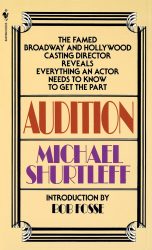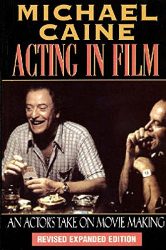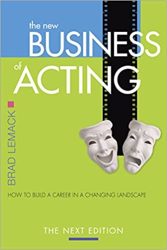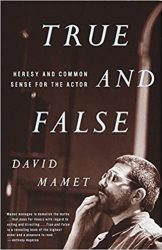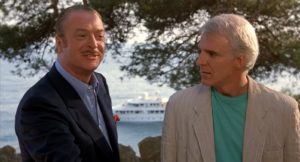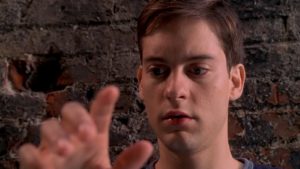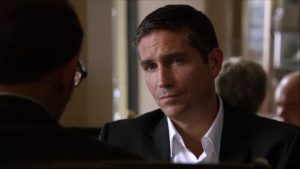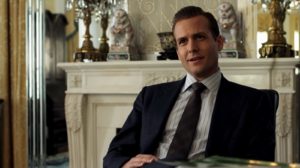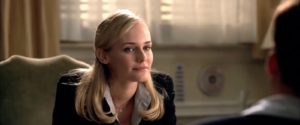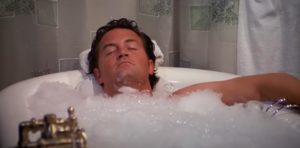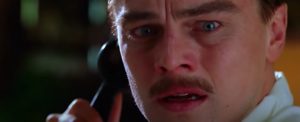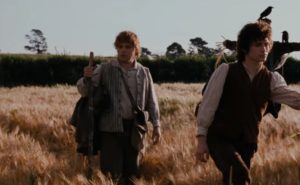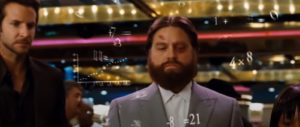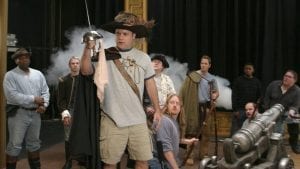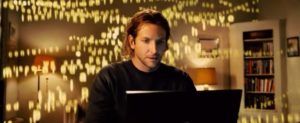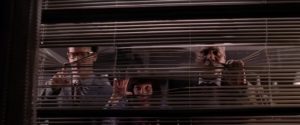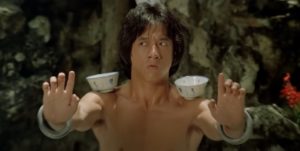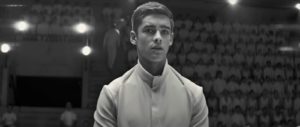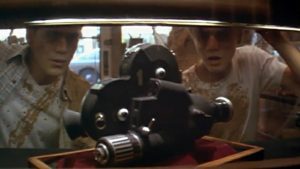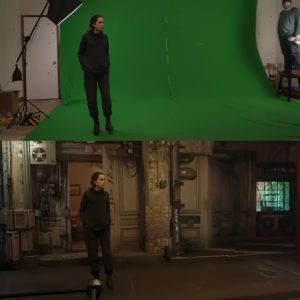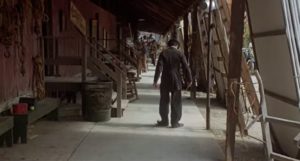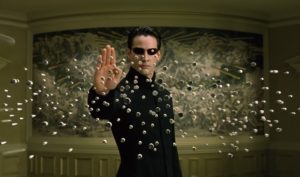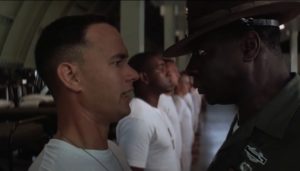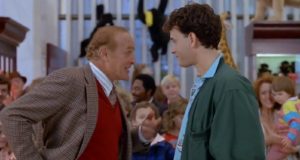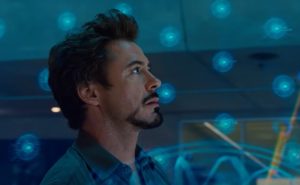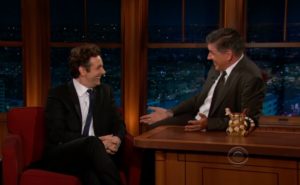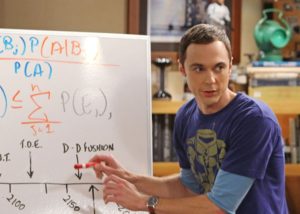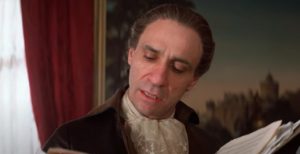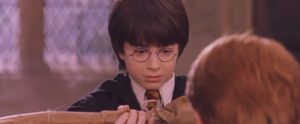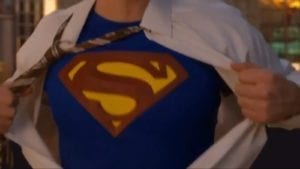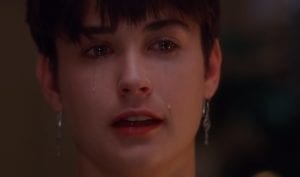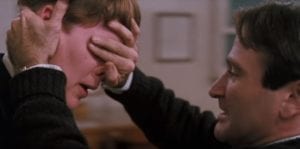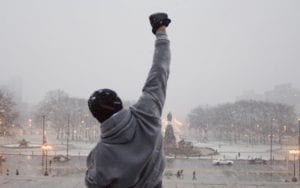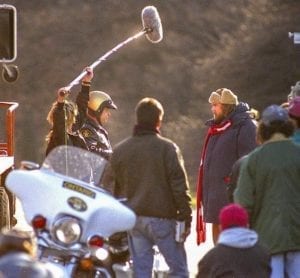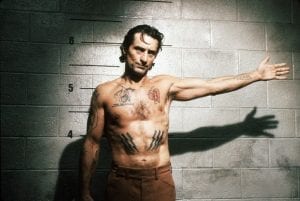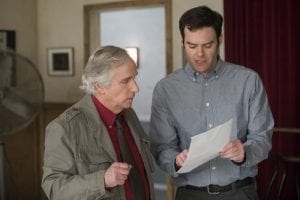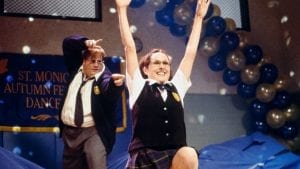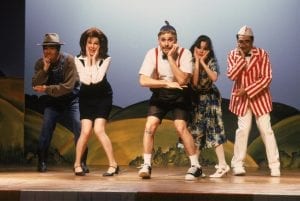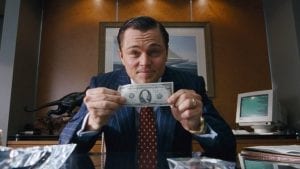
What makes a good actor is different based on whether we’re looking at it from an audience’s perspective or from an actor’s perspective. The audience tends to look at believability and how the actor moved them. However, these are very subjective things and vary based on the individual’s experience, which is affected by factors such as the culture and time where they grew up (what was considered believable in one country in the 1950s is different from what is considered believable in another country today); therefore, since this article is meant to be helpful for actors, I will speak from the actor’s perspective when I answer the question, “What makes a good actor?”
A good actor is made by reacting attentively in scenes; communicating a wide range of emotions with the eyes, body, and voice with appropriate subtlety; researching and studying the script to make interesting choices that fit the character and meet the scene’s needs; and good directors and editors.
Below you can find details about these factors that make a good actor, including direct quotes from famous actors so they can explain them to you in their own words.
Reacting attentively within scenes
“The foundation to good acting is good reacting, listening, paying attention to what’s around you. That’s how things can go from the level of good to the level of unexpectedly great.” – Viggo Mortensen (source)
Good actors make the audience forget that they’re acting, and one way they do that is by reacting thoroughly to everything and everyone within their make-believe world so that they look like they’re really part of that world. For example, take a look at how, in the scene below from Schindler’s list (1993), Ben Kingsley (the man with the glasses) looks around from 0:48 to 1:05 and how that makes you feel he’s truly present in the scene.
Why? Because it communicates a reality outside of the words and the scene being shown. It communicates a whole world. When you see that little look he gives toward the doors, here’s what you’re seeing: a man who’s worried about who’s coming through those doors, a man who’s worried about what this means, a man who’s worried about his life and his future. Doing this all while someone else is talking shows a level of preoccupation.
As an audience member, you don’t necessarily notice the specifics but it builds and creates a whole element of tension and emotional stakes that make his performance and the scene more interesting.
To get that level of sensitivity to your make-believe surroundings, good actors learn to ignore the camera and other irrelevant surroundings, as described in Val Kilmer’s quote below. (By the way, if you’re interested in learning this skill of ignoring everything except for your scene, here’s an article with exercises for that.)
“The trick to being a good actor is getting so involved in your character that the camera disappears, the 50 bored guys eating doughnuts disappear, friends disappear. To get to that point when you don’t have to think about it, you’re just acting and reacting in those circumstances.” – Val Kilmer (source)
Within the scene, good actors focus a lot on their scene partners and act compatibly with them to make them look good, as described in the quotes below:
“. . . it’s about listening and not doing, and it’s about handing yourself over and being as open as possible to other influences rather than imposing yourself on something. And so you try to get more and more open, and then more and more things start to just happen, and so you become a kind of receptacle.” – Alan Rickman (source)
“I need to be wide open, vulnerable to the moment between action and cut, and hugely vulnerable to the other actor. I like to sense what the other actor needs from my narrative function. How can I best provoke them into being who he or she needs to be? And therefore, rather like Spencer Tracy, one of my heroes, used to say, make the other guy look good. If my ego’s in the right place then the character’s not all about me, my character’s all about listening to the other and being open to the other.” – Ben Kingsley (source)
Good actors are also willing and flexible enough to adapt to whatever their scene partners are giving them, even if it is different from what they prepared for, as described by Viola Davis in the video below.
To summarize her words, good actors don’t get stuck up on their delivery. When I was starting out, if I figured out a really cool or dramatic way to say something, it was really hard for me to let go of it because it made me look so good. But what would make me look even better was the finished product of the scene as a whole, and that only comes if you can listen to the things the other person is saying and the way they’re saying them and react instinctively in the moment.
Why is preparation important then? If I have to be able to throw away everything I prepare, isn’t it better just to improvise? Good actors can improvise emotional reactions in a way that is consistent with the character and story, which often comes from extensive preparation to develop a deep understanding of the character and story as a result of studying the script (more on this later).
Communicating emotions with appropriate subtlety
“As an actor you’re just a channel, a medium that conveys the author’s text to the audience”. – Alan Rickman (source)
A good actor can make the audience perceive the right feelings.
The level of subtlety required to convey those feelings appropriately can depend on the audience and context. You might have noticed, for example, that the way actors act in children’s comedies is different from the way they act in serious movies made for adults. The former can be seen as overacting if done in the latter.
For example, below are two movie scenes with Robin Williams, in both of which he explains to a younger person that he understands the world better than them. In Jumanji (1995), which is a children’s movie, you can see Robin Williams acting in an extra dramatic way (especially as soon as the music starts playing at 0:38), which looks great in the scene. In Good Will Hunting (1997), which is a movie for adults, Robin Williams maintains a realistic minimalism in his movements, which also looks great in the scene. He changed his level of subtlety for each context and did so successfully: one movie is a favourite among children, and the other one won him an Oscar.
When Alan Rickman got a BAFTA for his over-the-top, comedic performance in Robin Hood: Prince of Thieves (1991), he stated, “This will be a healthy reminder to me that subtlety isn’t everything.”
Another way in which context matters for subtlety is when thinking about film and TV versus plays. In the world of film and television, the audience has a much better view of the actor’s eyes than they do in plays. Think about close-ups on TV shows or how big a face is on a huge movie theater screen. That is why a lot of film and TV actors put a lot of emphasis on communicating with their eyes, whereas in theatre more emphasis is placed on movements and body positions that can be visible from farther away.
For example, below you can see Denzel Washington perform the same scene (from Fences) in a film and on stage. In the film, you can see the emotion in his eyes, and you can see how on stage he exaggerates his movements to make them easier to see. The level of subtlety suits the context in both.
In contrast, in film and television, if an actor has a close up, they need to maintain a certain level of stillness for the audience to be able to read the emotions in their eyes. Even actors who are known for sometimes having big body movements, such as Nicolas Cage, if you look carefully at their performances, you will notice that they are often quite still (you just remember their big movements more).
Additionally, in the real world, most of us try to hide our feelings and the only indication of what we are really feeling is our body language. People tend to avoid showing how they feel with big body language, but their eyes can reveal their feelings anyway; that is why a lot of good actors in film and TV put a lot of emphasis on communicating with their eyes. For example, instead of looking angry by crossing their arms and frowning, you can just see the anger in their eyes.
“I watched season four of ‘The Wire.’ They have subtle performances that they do through their eyes. You could watch season four with the audio off and still understand what’s happening through their eyes.” – John Boyega (source)
“It’s important not to indicate. People don’t try to show their feelings, they try to hide them.” – Robert de Niro (source)
In addition to looking more realistic, some subtlety can give the audience freedom to put their own thoughts over the actor’s performance. When the audience isn’t completely sure of what you’re thinking, that can get them curious/interested, and they might notice little things that confirm what they think you’re thinking about. However, there is the danger of internalizing your feelings too much which can result in a boring performance. Good actors are able to act with just enough subtlety for interest and clarity.
“Stillness. It’s what I learn from the great actors that I work with. Stillness. That’s all and that’s the hardest thing. The other actor still like that is Anthony Hopkins. Learning how to be still, to really be still and let life happen–that stillness becomes a radiance.” – Morgan Freeman (source)
“It’s a fine line. If you withhold too much, you come across as wooden . . . I believe that the best performances are the ones that an audience has to search for . . . one of the best performances Anthony Hopkins does is not necessarily Silence Of The Lambs it’s Remains Of The Day, where it just seeps out. You’re forced to look a bit more. It comes out through the pores.” – Sam Worthington (source)
In addition to the eyes and body, the voice is also a powerful tool that good actors use to convey emotion. Michael Caine is someone who is very emotional with his voice and if you watch this funny impression of him you will see that they also bring up how he gets emotional with his voice.
We can also consider that, many times, when we’re trying to hide how we feel, sometimes it’s the tone that gives away our emotions. If you’re really sad but you’re trying to hide it, that sadness may come out in your tone, for example.
Good actors don’t just have the ability to have a large range of emotion, they also have the ability to have that range of emotion on a stage or on a set where the circumstances are contrived. For example, it’s great if you can be very emotional but, on a film set, in between each shot, you might be sitting in your room for an hour and a half, and your ability to replicate the feeling that the audience saw just a second ago in the film (and what, in the real world, actors might experience as several hours apart) is essential. Additionally, expressing the same emotion take after take when filming is another challenging thing that good actors can do.
By the way, normally, when people say emotion, what they’re really saying is crying; however, there is also a huge range of a emotions that can lead to crying. Crying is a symptom of something else and, when actors try to cry, it tends to look forced. Additionally, even though crying on command is impressive, it is not what makes someone a good actor (similar to how the most difficult-to-play musical pieces aren’t necessarily the most beautiful). In fact, similar to Robert de Niro’s quote above about how people try to hide their emotions, in the video below Michael Caine suggests that, especially for men, holding back the tears can be more effective than crying.
Good actors have the power to physically express a variety of emotions on set or stage (with their eyes, their body, and their voices) and they have the power to regulate the subtlety with which they express those emotions. However, with great power comes great responsibility. The choices an actor makes about how to use that power of emotional expression often depends a lot on how well they prepare, how well they study the script, which is discussed in the next section.
If you really want to understand this element of subtlety, you have to go back to reality. After reading this article, sometime tonight, have a few moments of self-awareness where you watch what people around you are saying and doing. Notice the contrast between what they’re saying and what they’re doing, and notice the little things that they do. Sometimes it’s a blink, sometimes it’s the tightening of the hand or flexing of the neck, but so often we can see so much just from the subtlest movement. As actors, we are afraid that if it is small then people won’t see it but, as implied in that video with Michael Caine, the camera will see everything.
Studying the script, researching, and making choices
“It’s a bit like wearing in a pair of shoes. You put them on your feet, and at first they squeak and hurt and you can’t really walk. But you LIKE these shoes, so you work away at it until the shoes feel comfortable.” – David Tennant (source)
Good actors read the script over and over, trying to study and figure out and question everything they know. Once you think you have the whole thing memorized (both your lines and all the other lines), you’re just scratching the surface. One celebrity personal trainer used to say that it’s only when your arms are burning that you start counting the reps; this is what studying means as an actor. Remembering your lines is just the beginning; really good actors go way deeper. For example, Anthony Hopkins says he reads the script 200 times and that this helps him.
“I learn the text so deeply that I think it has some chemical effect in my brain . . . I believe in learning the text which is there. Once you know it so well that you can improvise and make it real, it’s easy.” – Anthony Hopkins (source)
Good actors can achieve understanding of their character through research. This research can be performed in different ways. Some research techniques include reading books by or about the character (or people like them), talking to those who have met them, learning skills that they have, talking to the writers, and acquiring experiences similar to those the character had. For more details about these and more approaches, see the article about how actors get in and out of character. Good actors can use multiple approaches to get rid of their stereotypes and develop a good understanding of their character. For example, if you’re playing a Harvard professor, you might research what it takes to be Harvard professor within a certain field, talk to some Harvard professors, find out their salary and learn about their possible lifestyle, etc.
Good actors vary in their preparation process. In the video below, Matthew McConaughey describes what he thinks about when he tries to understand his character and give the audience the feeling that his character has a past and a future. Of note, at 2:23, he says that tapping into the character’s obsessions, if possible, can really help.
Good actors use their thorough understanding of the character to add context-specific nuances to their emotional reactions within scenes. Instead of just giving a general reaction, good actors recognize that, in real life, there are many different types of anger and happiness and other emotions, and people generally have multiple feelings layered over each other at once. For example, imagine what your feelings would be like in a graduation ceremony when your name is called. Maybe you’re happy because your favourite teacher is presenting your award, and maybe you’re also nervous because you’re hoping you don’t trip and humiliate yourself, and maybe you’re also still thinking about something a classmate recently told you, and maybe you’re also the first person in your family to graduate from a place like this. The answers to all these “maybes” can affect your performance.
“I’m curious about other people. That’s the essence of my acting. I’m interested in what it would be like to be you.” – Meryl Streep (source)
In the end, the researching all comes down to curiosity. Good actors are curious about the character they are learning to play. They figure out cool ways to see the character, analyzing them, and trying to become an amateur psychologist, figuring out what type of mentality and personality might lead someone to says and think of those words in the script. Good actors may also think deeply about the characters they’re not playing in order to understand the story better. For example, how often are you thinking about yourself and how often are you analyzing the actions and behaviours of others? As an actor you can see the lines and actions of all the other characters and apply the same obsession to those lines and actions as you would to the words and behaviour of someone you were really in love with, or admired, or hated, etc.
Additionally, good actors think about the themes and beats of each scene of the story so that their acting is suitable for the scene. For more information about how actors learn about themes and beats from scripts, see the article about how actors read scripts .
Of course, there is an infinite number of details to potentially think about, both about the character and the story. Ultimately, good actors research the story and character enough to acquire an instinct that can allow them to improvise in a compatible way, and they can achieve that state in different ways. In the quote below, Al Pacino expresses admiration for Johnny Depp’s ability to adapt his acting to his character as well as to the scenes:
“Johnny is one of the greatest actors of his generation. He has incredible instincts. He’s able to put himself into the head of his character and vary his level according to the needs of each scene. That’s a very rare gift.” – Al Pacino (source)
Once an actor has that understanding of the character and the story in their mind, they can see where they have room to do interesting things with their character. A good actor can make strong choices to creatively add interesting and even unusual things to their character in a way that, nevertheless, feels natural for the character because they know the opportunities and limitations of the character’s and story’s context. It’s like, the studying and research is building the playground, and the actor then gets to come up with games to play on the playground; the games are possible to play on the playground because they were created with the playground’s limitations (and opportunities) in mind. These strong choices can be instinctual, as stated in Robert de Niro’s quote below.
“I followed my instincts, based on the writing, where they thought there was something I could add or take away or whatever.” – Robert de Niro (source)
Good actors can use this room for creativity to make strong choices in many ways. For example, Norman Reedus gives an example of such an interesting addition that he made to his character that actually led the writers of the TV series (The Walking Dead) to help develop more of the story later:
“When you do television, you have this opportunity to drop these subtle hints everywhere. The way you say things, for example, sometimes those seeds turn into trees. I’ve had quite a few of those things happen. Daryl’s childhood, for example. In Season 2 when Carol kisses me after Andrea shoots at me, I flinched. That wasn’t in the script and now this year there’s a story line about how I had an abusive childhood.” – Norman Reedus (source)
In the videos below, you can see that this strong choice of the flinch was actually a subtle movement in the episode, and you can see Norman Reedus describe how the movement was instinctual, based on his understanding of the character (that was helped by him feeling separate from the other actors on set because of how late he joined the show).
As always, the most important thing that good actors do is always keep the context in mind. Great acting choices in one film can be terrible acting choices in another film. Good actors maintain compatibility with the intention of the script and the actions of their scene partners.
Directing and editing
“What makes a good actor is a good director. Definitely, as I’ve gotten more experience, I realize that the difference between decent work and great work is directors.” – Joaquin Phoenix (source)
A big part of being able to perform well is feeling relaxed on the set or the stage. If you are relaxed like when you are when you’re rehearsing at home in a safe environment, your performances will always be great because you won’t be “in your head.”
On a set or on a stage, your level of relaxation can be very highly determined by the director and the director’s vision. As actors we have very little say in what our performance should be, believe it or not. You can come prepared and do everything you want to do but, if the director has a different vision, they are the lead, and you have to follow their vision.
Therefore, a good director can make a good actor because they can make them feel relaxed and, therefore, get a great performance out of them; bad directors can make people feel very self-conscious or confused with the delivery and, as such, can ruin a performance.
“It needs to fit into the director’s intentions. Movies are a director’s medium. It’s their story in the end.” – Christoph Waltz (source)
“. . . in a movie, because comedy is so much timing and rhythm, all of that is most established in editing. I can say a complete straight sentence, just neutral and straight, and a good editor can turn it into a funny or sad thing.” – Christoph Waltz (source)
Editors can also make a good actor. In many ways, being a film and television actor can be extremely easy because a big chunk of your performance and the delivery and the emotion and all the things we value in great acting can be made or destroyed by editing. You randomly looking out a window waiting for the scene to start, if it’s captured, could be put into the film by the editor and, with the right music or with the right cut to a different person looking back at you, can make or break a scene and really create a lot of emotional tension. Take a look at this tension-filled scene with from Inglourious Basterds (2009), for example, and note the close-ups and the pauses that were worked on by editors:
Editing is where a lot of relationship and pace come from. Lupita Nyong’o called editor Joe Walker “the invisible performer in the editing room”, thanking him during her Oscars acceptance speech. If you really want to understand the power of editing, I highly recommend the film The Cutting Edge: The Magic of Movie Editing (2004).
Directors and editors can make a good actor out of a bad one. You might see terrible acting done on set today but, if the Director shoots in a certain way and the editor cuts to that shot in a certain way, we can turn a moment of an actor not knowing what to feel and looking very awkward into a moment of pure intensity. Most professional actors will tell you that acting can be a lot easier than you think because so much of the movie is made in the editing and filming.
Final Thought
Notice in the above list that so many of the elements that make a good actor are things that can be practiced, things that can be learned. So much of what actors do to be good is in the discipline and technique of acting. The trap so many wannabe actors fall into is thinking that it’s something that is all about their talent and their ability to be emotional, when it’s really just about good discipline.
